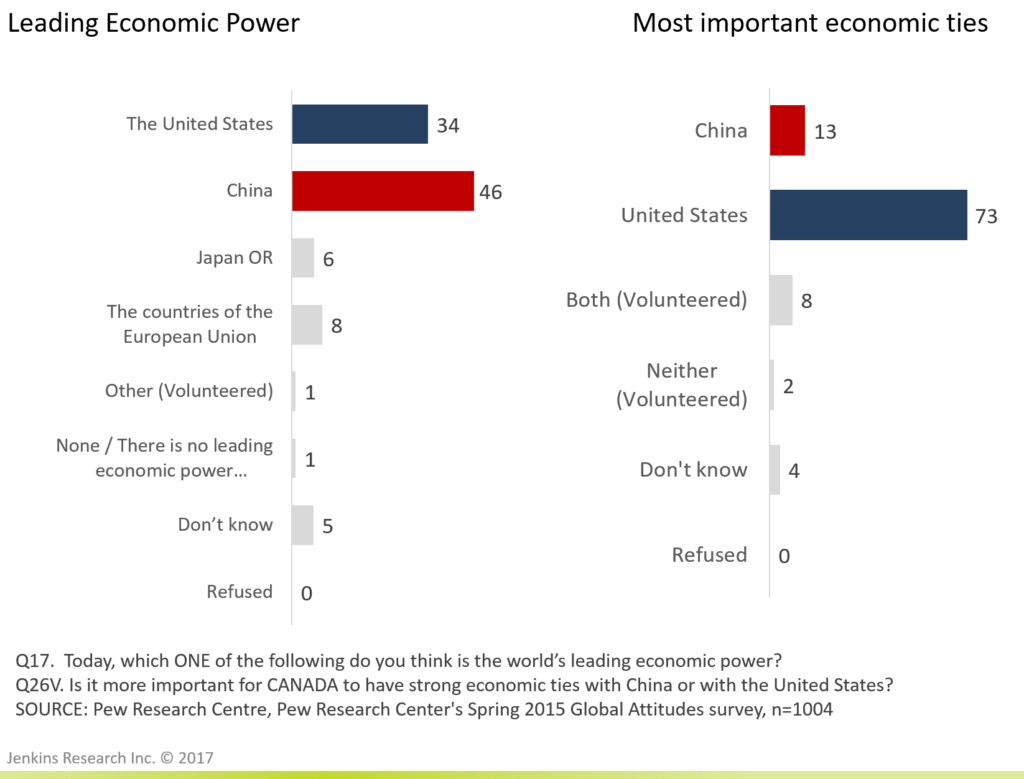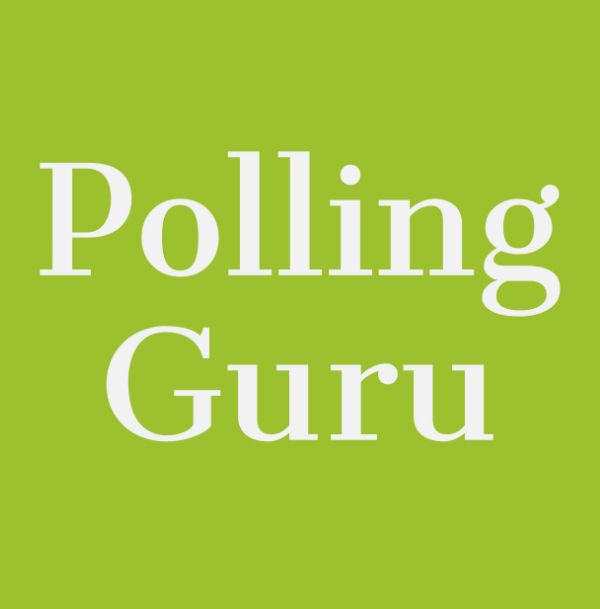Even back in 2015, Canadians largely understood that China had surpassed the United States as a leading economic power. It is no surprise then the Canadian Government would be looking to China, especially with Trump in the White House. The 2015 Pew Research Study, clearly showed two fundamental public opinion constraints.

Canadians have an unfavourable view of China
On balance, Canadians have a more unfavourable than favourable view of China (39% favourable and 48% unfavourable). it is not a story of deep dislike. Only 13% hold the very unfavourable view and many are unsure (13%).
The implication of a lean toward a negative outlook and the overall level of uncertainy is that a large percentage of the population will automatically be skeptical about specific policies that impact our relationship. It is one thing to be asked about one’s general orientation (how favourable are you toward “China”) than to support concrete action that may have implications for Canada’s interests or values.
Canadians are oriented south
Although Canadians recognize China economic role in the world, China is not currently viewed as the most important trade partner. In fact, a large majority of Canadians, 73%, think our economic ties with the U.S. are the most important compared with only 13% think it is ties with China that are the most important. This closeness inertia
It is fair to say that a majority of Canadians recognize the economic importance of China at this time and many perceive that China is on the path to a greater international role in the world. A significant sub set of the population also views China favorably. This context provides a supportive plank for engaging Canadians on our future relationship with China since a productive relationship may offer real benefits as China’s world influence increases.
It will be critical to view current public opinion through the lens of the 2015 survey since Trudeau’s clear pursuit of closer ties with China will further shape how Canadians react.
Results presented here are from a 2015 Pew Research multi-country survey (The Pew Research Center bears no responsibility for the analyses or interpretations of the data presented here) that included asking Canadians a number of questions on China.
For additional analysis, including the partisan implications of pursuing stronger relationships with China see the full report at Jenkins Research.

